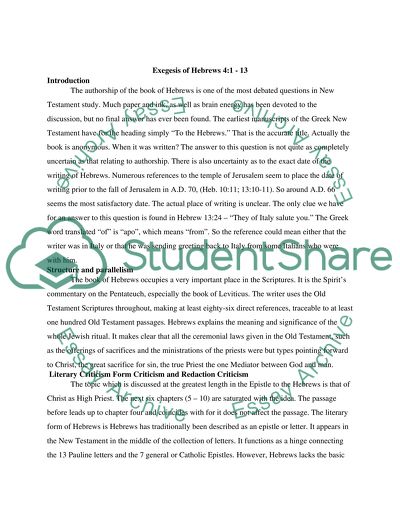Cite this document
(“Exegesis Paper Essay Example | Topics and Well Written Essays - 2250 words”, n.d.)
Retrieved from https://studentshare.org/environmental-studies/1418754-exegesis-paper
Retrieved from https://studentshare.org/environmental-studies/1418754-exegesis-paper
(Exegesis Paper Essay Example | Topics and Well Written Essays - 2250 Words)
https://studentshare.org/environmental-studies/1418754-exegesis-paper.
https://studentshare.org/environmental-studies/1418754-exegesis-paper.
“Exegesis Paper Essay Example | Topics and Well Written Essays - 2250 Words”, n.d. https://studentshare.org/environmental-studies/1418754-exegesis-paper.


